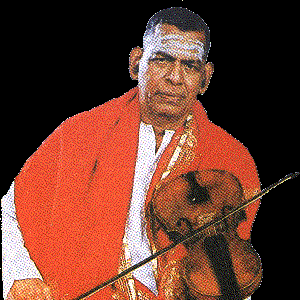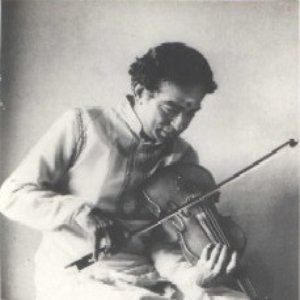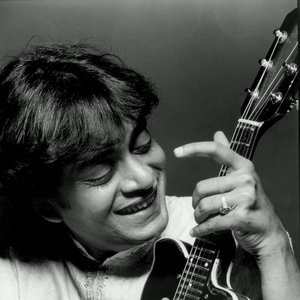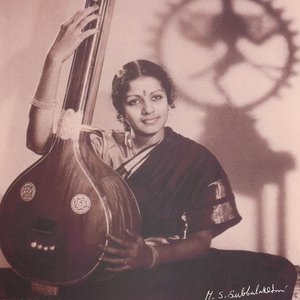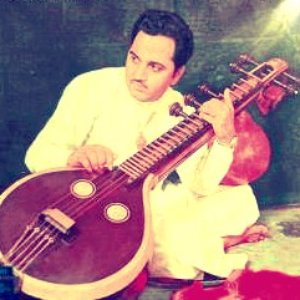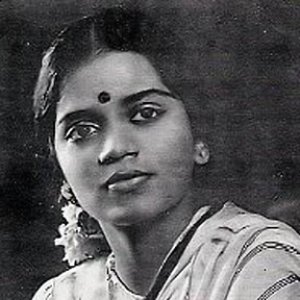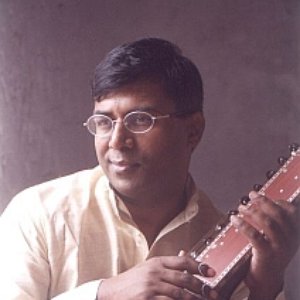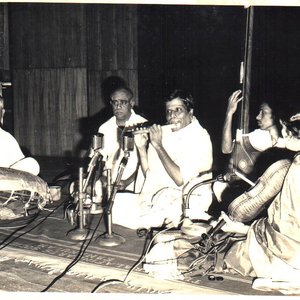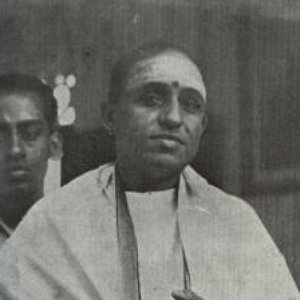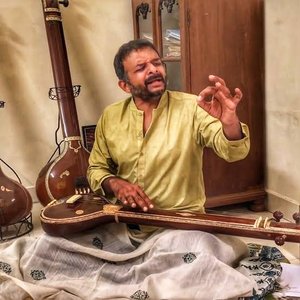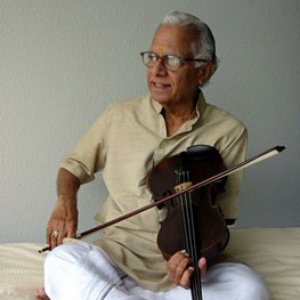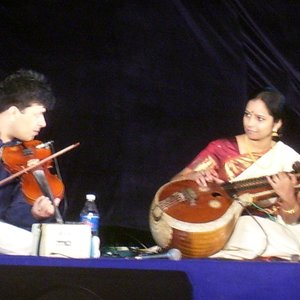Biography
-
Born
18 January 1927
-
Born In
Chennai, Tamil Nadu, India
-
Died
13 April 1990 (aged 63)
Sundaram Balachander (Tamil: எஸ். பாலச்சந்தர்) (January 18, 1927 – April 13, 1990), born in Madras was an Indian self-taught veena player. He was also an accomplished film maker, producer, director, music director, actor, singer, playback singer and dancer.
His ancestors were from Srivaajiyam village in Tanjore area, which is acclaimed as the seat of culture and fine arts in South India. His grandfather is Rao Saheb Vaidyanatha Iyer. He was born to V. Sundaram Iyer and Parvathi alias Chellamma. His father bought a house in Mylapore in 1924, at the suggestion of Pudukkottai Dakshinamurthy Pillai he added a hall in the first floor exclusively to entertain and be entertained. Stalwarts like Ariyakudi Ramanujam Iyengar, Madurai Mani Iyer, Ambi Deekshithar, Muthaiah Bagavathar, Karaikudi Sambasivam and Papanasam Sivan have all performed in that hall. In fact, it was Sundaram Iyer who took Papanasam Sivan under his fold when Sivan relocated to Madras to earn a livelihood.
His elder brother S. Rajam is a well-known singer and teacher, and a gifted artist as well. His elder sister is S. Jayalakshmi (who later acted as M. K. Thyagaraja Bhagavathar’s pair in Sivakavi), S. Saraswathi was his younger sister, followed by the twins S. Karpagam and S. Gopalaswami.
From the age of five he showed an interest in classical music and his first musical attempt was with the kanjeera, which is a small, circular percussion instrument. Within a year he was accompanying his brother and other musicians on the kanjeera during regular concert engagement, in Sabhas, in temple festivals, in devotional congregations, etc. From age six on his career achieved steady growth. He also learnt to play tabla, mridangam, harmonium, bulbuldara, dilruba, and shehnai .
On the sitar, Balachander was a fully fledged solo concert artist by age twelve and it is interesting to note that he performed South Indian Carnatic music on that instrument. From age fifteen to eighteen he served as an artist on the staff of "All India Radio", Madras, playing many instruments during the almost daily broadcasts, while also performing in solo recitals, participating in orchestral ensembles, accompanying other artists and composing and conducting pieces of his own.
A hectic period of playing and working for All India Radio playing came almost simultaneously to an end with the entry of the veena into his life. Falling in love with the instrument, from the beginning he felt that it deserved his undivided attention and every skill. Without a tutor or master to guide him, within two years he was an established concert veena player. He felt that "by the grace of god" was he able to bring credit to himself as for his achievement of having evolved a new trend, a new style and a new school of veena-playing.
Balachander also possessed a substantial knowledge of North Indian Hindustani classical music, and a keen appreciation of Western classical music.
He traveled all over the world, and won international fame as an instrumentalist of rare repute. The famous electric bassist Mark Egan cites Balachander as a major influence on his music. At one time, Balachander held the record for cutting the highest number of records (21 in India, and 6 outside India). The 12 LP set encompassing the 72 melakartas is a piece of work that has no parallel. Magic Music of India (World Pacific), Sounds of the Veena (WPS), Veena Virtuoso (World Music Library), Immortal Sounds on the Veena (Oriental Records), veeNa (EMI), The Music of the Veena (JVC, Japan), and The Music of India (Nonesuch Explorer) are some his releases that have been best-sellers world-wide.
He is also known for his work in cinema, his writing and his polemics. Balachander was awarded the Padma Bhushan in 1982.
Artist descriptions on Last.fm are editable by everyone. Feel free to contribute!
All user-contributed text on this page is available under the Creative Commons Attribution-ShareAlike License; additional terms may apply.

